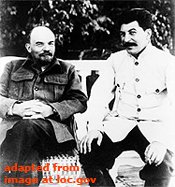‘Stalin knew’: why NGO work is important

(Moscow News – themoscownews.com – Natalia Antonova – April 1, 2013)
The NGO raids in Russia are the big story right now – and yet this story is one that threatens to overshadow some of the important work being done by one particular NGO.
I’m talking about “Stalin’s Shooting Lists,” an updated and corrected disk recently reissued by Memorial scans (please see Joy Neumeyer’s feature about the disk and another Stalin-related publication, an album of arrest shots, on pages 20-21 of this week’s print edition of The Moscow News). It contains original document scans and showcases the names of people whose executions were personally approved by Josef Stalin and his inner circle during the purges of 1937 and 1938. Stalin’s personal signature, in red pencil, appears on 357 lists.
As project director Yan Rachinsky told The Moscow Knews, these lists prove that “Stalin knew” exactly what was happening at the time of the Great Purge.
This is no small point, of course. Even as the purges went on, many people, loyal party members in particular, refused to believe that Stalin was personally to blame.
Today, Russian society continues to grapple with the legacy of Stalin – perhaps not so much on the official level as on the individual level (the Communist Party’s bombastic displays on the anniversary of Stalin’s death notwithstanding). The task is made more difficult by the fact that many people associate Stalin with the heroic sacrifices of WWII; for them, criticizing the former is akin to criticizing the latter.
Stalin’s signature will not convince the people who drank the authoritarian Kool-Aid a long time ago. For them, Memorial’s findings will serve as just one more reason to persecute the NGO and organizations that are similar to it. After all, criticism of absolute power seems downright “unpatriotic” to these folks.
Yet there are others out there – people who genuinely struggle with history. They don’t want to diminish the triumph over Nazi Germany, for example, and yet cannot quite reconcile that with the Great Purge; they look askance at their grandmas when they praise “Comrade Stalin” and so on.
For them, the shooting lists can serve as an important reminder of the severity of the Stalin years. Even as the memory of the 1930s is watered down by Internet memes and joking references to Stalin on entertainment shows, their historic essence does not change. With the stroke of a pencil, the “Comrade” crossed out thousands of lives.
